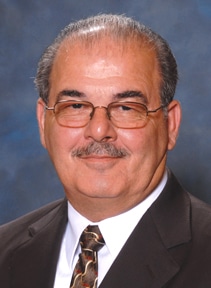Brothers and Sisters:
Meetings are underway across the country to explain our tentative national rail agreement and provide members the opportunity to ask questions. Check with your local officers, general chairperson or state legislative director if you have not been notified of a meeting near you.
A listing of meetings also is provided on the home page at www.utu.org.
A voting package will be mailed by mid-May to members eligible to vote on the national agreement. A notice will be posted at www.utu.org when the packages — with voting instructions, the complete agreement, and questions and answers — are mailed. Voting will be via telephone and conducted by the American Arbitration Association.
In the meantime, information on the agreement is available on the UTU Web page, at www.utu.org, under a special link, “Railroad Contract Negotiations Update.”
Our tentative agreement improves on the pattern settlement, and general committees of adjustment still will be able to gain additional improvements on local issues.
Does the tentative national agreement provide everything we want? No. But the bottom line is that we can’t do better than we have achieved with this national agreement — but we could do worse.
Those of us who suffered through PEB 219 in 1991 recall what happened when we struck the railroads and Congress imposed the PEB recommendations.
Even though the House of Representatives was controlled by Democrats, Congress ended the strike within hours. The legislation forced on us the PEB 219 recommendations, which resulted in two-person crews and elimination of the fireman-helper.
The recommendations of PEB 219 were the final nail in the coffin eliminating brakemen and firemen-helpers — the nails and coffin provided by the carriers and the hammer by the first President Bush in selecting the members of PEB 219.
If we reject this agreement, we can expect that the improvements we gained over the pattern settlement would be dead-on-arrival at a Bush-appointed PEB.
That would mean we would lose the ability to keep the entry-rate issue on the table and correct it through arbitration, lose the higher meal allowance, lose the COLA, and lose a provision unique to our agreement that returns to us any health-care insurance-premium savings should Congress enact public-funding of health-care.
Additional items
When you receive your May issue of UTU News in mid-May, we call your attention to four items:
- The UTU budget is published, which delegates instructed us to do at the quadrennial convention last August.
- There is an article on two of our younger leaders — Billy Moye and Carlos Wallace — who recently completed a course at the National Labor College in organizing strategies, which included principles of labor law, communication skills and fact-finding. Brothers Moye and Wallace will be taking those skills into the workplace to infuse in new members a full appreciation of what unions accomplish for members.
- A feature continues that spotlights three UTU headquarters employees each month.
- Another continuing feature spotlights two UTU designated legal counsel each month — skilled and experienced attorneys who understand the railroad industry, its safety hazards and every aspect of the Federal Employers’ Liability Act (FELA). Our designated legal counsel are chosen for their special knowledge and experience, and their job is to represent you if you are injured on the job.
Please take note that on the UTU Website, at www.utu.org, under the link for “Meetings,” there is complete registration information for our regional meetings in Denver and Nashville. Those meetings focus on education and interaction among members.
A highlight of this year’s regional meetings will be a presentation by Professor Jim McDonnell on labor history and the role of labor unions in creating a middle-class in America. As Professor McDonnell advises, labor cannot build for the future without fully understanding its past struggles, defeats and victories.
At UTU headquarters in Cleveland, we have been realigning jobs to make member services more efficient and cost effective — and without hurting any of our dedicated employees who are ably and proudly represented by the Office and Professional Employees International Union (OPEIU).
Finally, the 2008 annual sales meeting of the United Transportation Union Insurance Association will be held April 27-29 — the one annual event dedicated to training and educating our field supervisors and assistant field supervisors. It is a forum for the exchange of ideas and experiences related to existing and new UTUIA products and services.
In solidarity,
Mike Futhey, International President
President@utu.org
Arty Martin, Assistant President
AsstPres@utu.org
Kim Thompson, General Secretary & Treasurer
GST@utu.org
